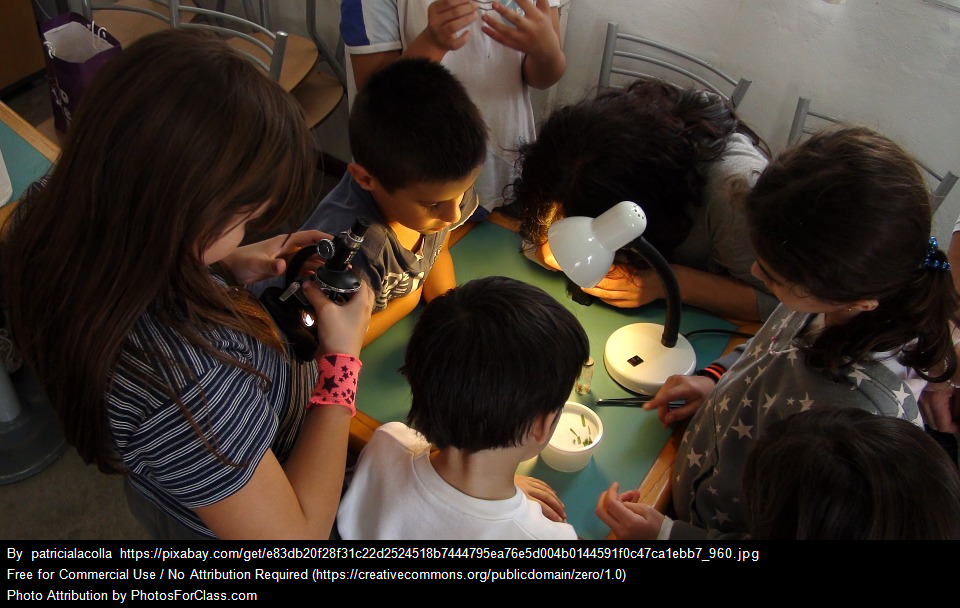This post was first published on my ‘other’ blog. It’s not intended to diss primary school teachers – quite the reverse! They need all the help & support they can get to help them deliver the science curriculum.

In 2011, Sir Peter Gluckman released his report, Looking ahead: science education for the 21st century. In it, he noted the need to improve science teaching in primary schools, commenting that
there should be an attempt to improve the confidence [my emphasis] of all teachers within primary schools to assist in science and that all primary schools should be encouraged to develop a science champion.
And in 2012, David Vannier pointed out that
there is growing evidence that too many children are not doing well in science and do not have access to effective instruction, especially at the primary level.
and that
[at] the same time that the New Zealand government is seeking to spur innovation in science as a means to improve the economy, less and less emphasis is being placed on science instruction in primary schools.
Fast forward to Monday this week, when Radio NZ reported on the findings of The National Monitoring Study of Student Assessment (NSSA): that 20 percent of Year 8 children last year reached the expected level of achievement in science – the lowest figure of any learning area in the curriculum. While most children liked learning about science at school – 82% of those in year 4 and 65% in year 8 – those figures haven’t changed significantly since the previous survey in 2010, and the decline between years 4 and 8 should be a concern. Overall, these results don’t augur well for science literacy and engagement with science amongst our young people.
You may be tempted to lay this result at the feet of National Standards. Don’t. Looking Ahead was published in 2011. National Standards were first implemented in 2010, just a year earlier. The issues identified by Sir Peter Gluckman have had a longer gestation than that.
I wrote about Sir Peter’s report at the time, highlighting his statement that
science education is not just for those who see their careers involving science but is an essential component of core knowledge that every member of our society requires.
Thus, science education needs to deliver on what Sir Peter characterised as ‘citizen-focused objectives’, where all children need to have:
- a practical knowledge at some level of how things work;
- some knowledge of how the scientific process operates and some level of scientific literacy
- enough knowledge of scientific thinking as part of their development of general intellectual skills so that they are able to distinguish reliable information from less reliable information.
But can it deliver? His report also notes that
[a] well prepared primary school teacher will integrate excitement about the natural world and scientific forms of thinking into literacy and numeracy teaching, and into general educational processes. The challenge is how to provide primary teachers with the skills to do so. [My emphasis]
I believe that meeting this challenge will require changes to at least two things: teacher-training curricula, and professional development (PD) and support.
Just 25% of primary school teachers hold another qualification, in addition to their teaching degree, and it’s probably fair to say that BSc graduates are in a minority. Intending primary school teachers usually study for a 3-year Bachelor of Teaching degree, and take a range of papers in their first year – including one on science teaching. This one paper, plus learning opportunities while on practicum in schools, may well be their sole exposure to science (Campbell, 2018).
Which is where the PD and support come in. Ally Bull (2016) found that science was “marginalised” in the primary curriculum; and that teachers – lacking confidence to teach the subject – often had little in-school support and only limited access to opportunities for PD. The majority of those providing the PD (51%) aimed to enhance teachers’ confidence to teach science, and just 5% felt that developing their knowledge of science was important. Bull also cited other research that found that “primary teachers’ lower confidence in low confidence in teaching science reflected their lesser degree of content knowledge.”
There are ways to address this. Anne Hume & Cathy Buntting (2014) developed resources and shared these with primary teacher trainees, encouraging them to think about what science ideas they could teach (plus the why, when & how) while using those resources. Their results? Really encouraging:
Even student teachers who had previously felt very apprehensive about teaching science reported feeling far more confident about the prospect after completing the CoRe assignment.
Programs like theirs, changes in teacher education, and the commitment to provide ongoing mentoring and support, should raise teachers’ confidence in teaching science and see them reach their full potential as ‘science champions’. Our teachers and our children deserve no less.

You must be logged in to post a comment.